What are Solar Water Heaters
Solar water heaters are sustainable solutions for heating water that utilize solar energy, making them an eco-friendly alternative to conventional water heating systems. They are designed for anyone looking to reduce their carbon footprint and energy costs, including homeowners, businesses, and institutions. These systems capture sunlight, convert it into heat, and then transfer that heat to water. They can be used in various settings such as residential homes, hotels, commercial buildings, and outdoor facilities.
The principle behind solar water heating is quite simple: a solar collector absorbs the sun’s rays and converts them into heat. This heat is then transferred to a fluid, typically water or a freeze-resistant fluid in colder climates, which is circulated through the collector. After gaining heat, the fluid travels to a storage tank where the heat is transferred to the water inside. Depending on the system's design, this process can either be direct or indirect. In direct circulation systems, the water is heated as it passes through the solar collectors and then routed to the taps. Indirect systems use a heat exchanger that heats up the water separately from the fluid that circulates through the collectors.
There are passive and active solar water heater systems. Passive systems rely on natural circulation of water between the collector and the tank or use convection to circulate the fluid without additional mechanical equipment. Active systems use pumps and controls to circulate water or other fluids from the collectors to the storage tank. Both types have their advantages, with passive systems typically being more reliable and easier to maintain while active systems offer more control and efficiency.
Types of Solar Water Heaters
The market offers several types of solar water heaters, each with specific features catering to different needs.
Direct Circulation Systems: These systems pump household water through solar collectors where it is heated by the sun directly. They are ideal in regions where freezing temperatures are not common.
Indirect Circulation Systems: These utilize a non-freezing heat-transfer fluid through collectors and a heat exchanger. This system heats the water that then flows into the home and is suitable for areas with freezing temperatures.
Thermosyphon Systems: Water flows through the system when warm water rises as cooler water sinks. The collector must be installed below the storage tank so that warm water will rise into the tank. These are reliable but need careful installation to support the heavy storage tank.
Integrated Collector-Storage Systems: Also known as batch systems, they feature large tanks or tubes attached to a rooftop or a frame which preheat water using solar energy before it enters your conventional water heater. They are best for areas where temperatures rarely fall below freezing.
Flat Plate Collectors: Consisting of an insulated metal box with a glass or plastic cover (called glazing) and a dark-colored absorber plate, these are common for residential hot water applications.
Evacuated Tube Solar Collectors: They contain rows of transparent glass tubes. Each tube contains a glass outer tube and metal absorber tube attached to a fin. The fin’s coating absorbs solar energy but inhibits radiative heat loss, making them very efficient even under less ideal weather conditions.
How to choose Solar Water Heaters
Choosing the right solar water heater for your business involves considering several factors such as climate, space availability, and heating requirements. In climates prone to freezing temperatures, indirect circulation or evacuated tube systems might be optimal due to their freeze protection capabilities. Conversely, for milder climates with no risk of freezing, direct circulation systems may suffice.
Space is another consideration; thermosyphon systems require adequate space for installation due to their heavy tanks. Flat plate collectors might be more suitable for businesses with limited space since they can be installed on rooftops with ease.
Additionally, consider your hot water demands. Batch systems may be sufficient for smaller operations with lower hot water needs while larger hotels or commercial facilities might benefit from active circulation systems that can handle higher volumes of hot water usage efficiently.
Efficiency also plays a crucial role in selecting a solar water heater; evacuated tube collectors offer high efficiency even in overcast conditions which might be crucial if your business location does not receive consistent sunlight throughout the year.
Lastly, assessing long-term durability is important – opting for stainless steel or galvanized steel frames can offer better resistance against environmental elements thus ensuring longevity of your investment in solar heating technology.
Best Solar Water Heaters on Alibaba.com
Alibaba.com stands out as an essential marketplace for sourcing wholesale solar water heaters from suppliers around the globe. For businesses seeking eco-friendly and cost-effective solutions for their hot water needs, Alibaba.com offers an expansive selection of solar heating products that cater to various applications – from residential use in homes and apartments to commercial installations in hotels and industrial projects.
Each product listing on Alibaba.com provides detailed information about specifications such as housing materials, pressure ratings, installation types, and additional features like temperature control or overheat protection. This variety ensures that businesses can find tailored solutions that align perfectly with their specific requirements without compromising on performance or quality standards.
Moreover, Alibaba.com's Trade Assurance service adds an extra layer of security by safeguarding payments until delivery is confirmed by buyers – reinforcing trust in transactions conducted on this global platform. With an intuitive interface designed for ease of use on both desktops and mobile devices along with support for multiple languages, Alibaba makes it simple for businesses worldwide to expand their operations by integrating sustainable practices like solar heating into their services and offerings.
Common FAQs for Solar Water Heaters
What is the average lifespan of a solar water heater?
Solar water heaters typically have a lifespan of around 20 years, depending on the quality of the system and maintenance practices.
How do solar water heaters perform in cloudy weather?
Solar water heaters can still function on cloudy days, but their efficiency will be reduced. Evacuated tube collectors, for example, are designed to capture sunlight more effectively in less than optimal conditions.
Can solar water heaters provide hot water during winter?
Yes, solar water heaters can provide hot water during winter. Systems equipped with freeze protection are designed to operate in colder climates.
What maintenance is required for solar water heaters?
Maintenance for solar water heaters usually includes checking the system for leaks, ensuring the collectors are clean and unobstructed, and inspecting for any corrosion or damage annually.
Are there any financial incentives for installing solar water heaters?
Businesses may find financial incentives such as tax credits, rebates, or grants for installing solar water heaters depending on their location and local government policies.
How much space is needed for installing a solar water heater?
The space required varies based on the type and size of the system. It's important to conduct a site assessment to determine the appropriate space for installation.
Can solar water heaters be integrated with existing heating systems?
Yes, many solar water heating systems can be integrated with existing heating systems to provide a supplemental heat source.
What factors should be considered when sizing a solar water heater for a business?
Factors to consider include the volume of hot water required, local climate conditions, the efficiency of the solar collectors, and space available for installation.
Are there different types of collectors for solar water heaters?
Yes, there are primarily two types of collectors: flat plate collectors and evacuated tube collectors. Each has its own advantages and suitability based on climate and hot water needs.
What is the difference between pressurized and unpressurized solar water heaters?
Pressurized systems operate under high pressure and offer a steady flow rate; unpressurized systems rely on gravity and differ in their structural requirements and installation methods.
How does the efficiency of a solar water heater compare to traditional heating methods?
Solar water heaters can be more energy-efficient than traditional heating methods since they utilize renewable energy from the sun, which can lead to lower operational costs over time.


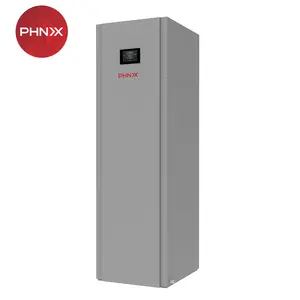








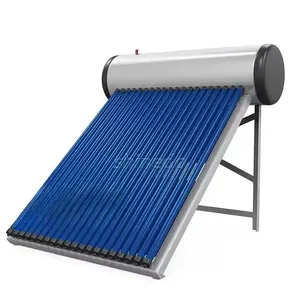


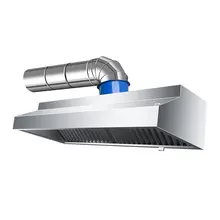

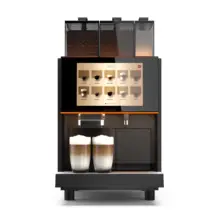
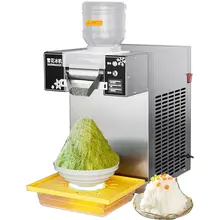





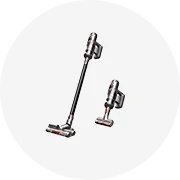



















 浙公网安备 33010002000092号
浙公网安备 33010002000092号 浙B2-20120091-4
浙B2-20120091-4